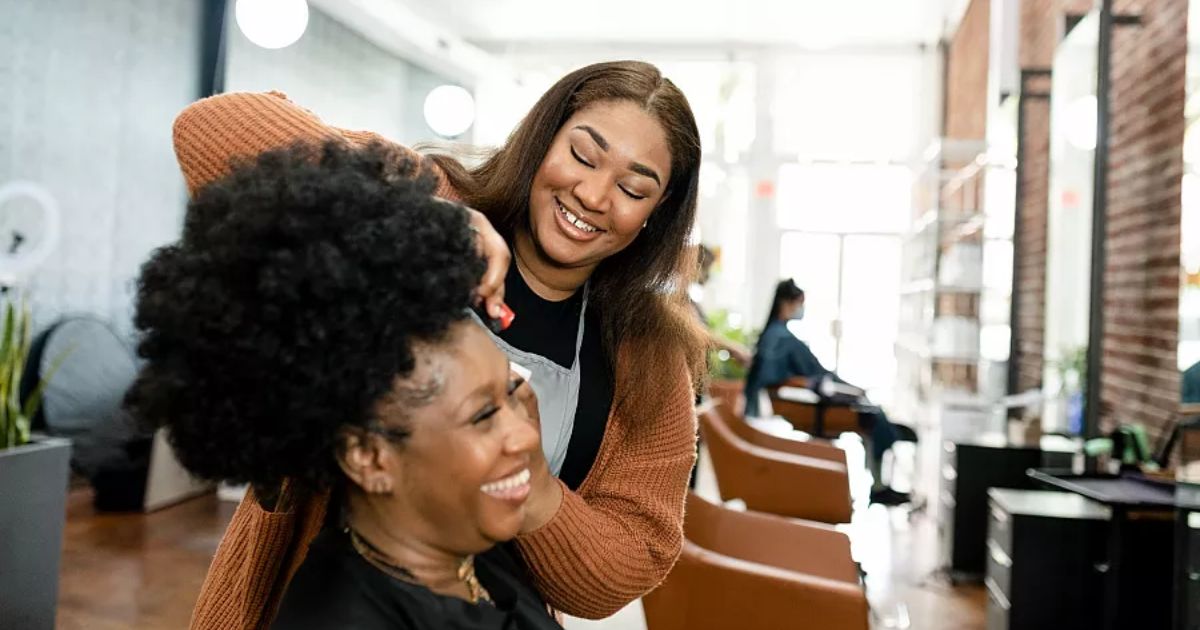Some enterprising people are using hair salons to find solutions to this serious mental illness from their hairdressers.
This is due not only to the fact that there is little access to formal counseling services, but also because of the stigma that surrounds mental health.
Joseline de Lima, a single mother dealing with personal grief and unemployment, found solace in her hairdresser Tele da Silveira.
She could not afford traditional therapy sessions and did not get that until she began sharing her problems with Silveira at the salon.
It was surprising how much comfort she received from confiding in a woman who worked on vibrant wig stands next to neon lights.
The charity has trained around 150 women in West and Central African cities such as Silveira.
In order to spot signs of suffering, empathize with patients, and offer helpful advice without being harmful, they had to be taught by Bluemind Foundation well–wishing non-governmental organizations.
Mental Health Crisis in West and Central Africa
This initiative aims at filling the lack of support for mental health in an area where counseling services are limited.
According to World Health Organization (WHO), the African region has some of the highest suicide rates worldwide while having minimal public expenditure on mental health.
On top of having a limited number of mental health experts such as psychiatrists, psychotherapists and so on, countries like Togo have five psychiatrists serving over eight million people.
Breaking Barriers through Hair Salons
Hair salons were chosen as places where women frequently gather since it approached them conveniently affordably too.
In between hair styling sessions hairdressers working under the Bluemind Foundation engage their clients about emotional turmoil, financial problems or abuse cases which offers them another set of ears.
Marie-Alix de Putter founded this program after realizing how much time women spend at hair salons in Africa.
These spaces present opportunities for promoting knowledge about mental wellness which should be done away with as society no longer understands the same and also eliminates mental health challenges.
Challenges and Resilience
However, there are still some difficulties. For one thing, many people who need professional help cannot afford it.
Majority of them are even unable to pay for a single sitting. Additionally, dealing with stigma is a long-standing impediment towards the progress of this crisis.
Furthermore, it is important not to disregard the emotional impact on hairdressers who act as informal counselors.
Although they themselves have monthly therapy sessions, they are often unable to provide full mental support due to their own struggles with mental health.
A Glimmer of Hope Provided by Hairdressers
However, stories like that of Joseline de Lima who found renewed strength and resilience through the guidance of her hairdresser illustrate the impact of this unconventional form of mental health support.
De Lima started walking again and sought advice for therapy options giving credit to her hairdresser for seeing and addressing her unspoken pain.
The journey to destigmatizing mental health problems in Africa such as Togo is still on with local NGOs and international organizations leading the way in creating awareness for such issues.
In conclusion, the most unexpected mental health heroes in West and Central Africa are sprouting from the hair salons, which offers hope to persons handling emotional turmoil.
By listening empathetically and providing non-judgmental assistance, these ex-hairdressers are revolutionizing conversations about mental health one salon customer at a time.
Despite the challenges that persist, the transformative effects of informal counseling in such unconventional spaces may indicate a change in how mental health emergencies should be managed in resource-poor settings thus creating an understanding and caring society for the sufferers.




























